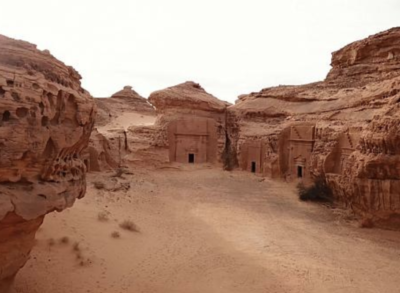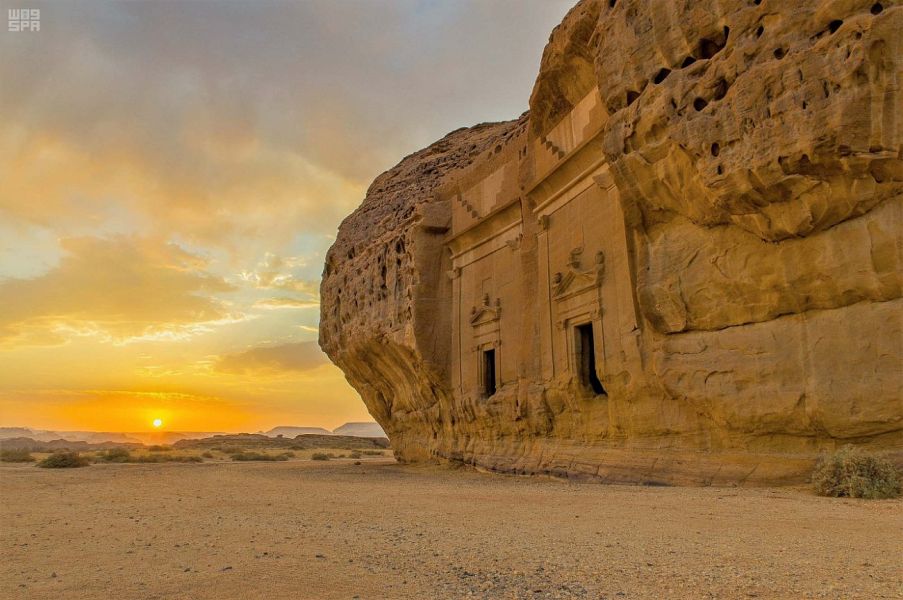Archaeologists are planning to carry out the first international, in-depth survey of Al-Ula in Saudi Arabia and the surrounding areas “the size of Belgium” in order to better understand the Nabatean people, the BBC reports.
A “large international team of more than 60 experts has started work on an initial, two-year project to survey the core area of 3,300 sq km in north-western Saudi Arabia…This is the first time such a large area of more or less scientifically uncharted territory has been systematically investigated,” according to the BBC.
The Nabataean culture left behind sophisticated stone monuments, but many sites remain unexplored.

Al-Ula, Saudi Arabia.
The Nabateans existed from around 100 BC to roughly 100 AD, according to the BBC, and while they ruled from the stunning city of Petra in Jordan, “they made Hegra (the modern Mada’in Saleh) in Al-Ula their second capital.” Al-Ula has yet to receive the tourism interest that Petra has enjoyed, and that’s about to change. Now that the Kingdom is opening up to tourists as part of a push toward economic diversification, several sites and areas across Saudi Arabia like Al-Ula are set to become attractions for Saudis and visitors to explore the historic culture and people of the Arabian Peninsula.
Until now, only smaller teams of Saudi archaeologists have explored and learned from the area. But the creation and empowerment of the Royal Commission of Al-Ula by Saudi authorities, as well as the Kingdom’s expansion of its investment into further understanding its heritage sites, may lead the newly formed international team of archeologists to fascinating new discoveries.
According to the BBC, the involvement of the Royal Commission ensures that cutting-edge technology is at the disposal of archaeologists experienced in the field. Rebecca Foote, the American archaeologist in charge of the survey for the Royal Commission for Al Ula, said that the scope of the undertaking “will put Saudi Arabia on the ancient history map.”
“A great deal is known about the first to third millennium BC and we’re well informed about ancient Egypt and Mesopotamia,” she acknowledges.
“Yet comparatively little about the Arabian peninsula in ancient times has been discovered. Exactly how our findings will impact on understanding of ancient history, we don’t yet know. But it is likely to reshape the world view of earlier periods.”
[Click here to read the full report from the BBC]









